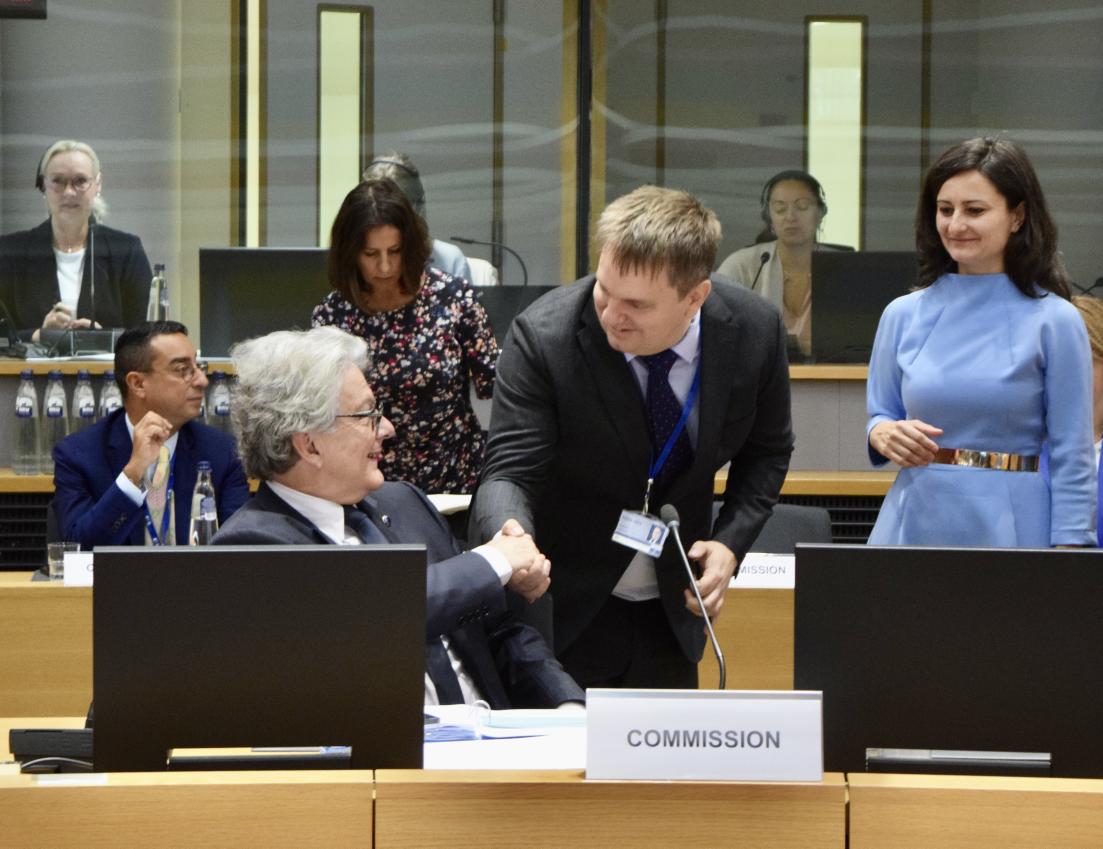After a lively debate at the meeting of the Competitiveness Council on September 25, the ministers accepted the Council's position regarding the new Euro 7 emission standard for motor vehicles. The final text was supported by the vast majority of member states. The Council - thanks to the active contribution of Hungary in the coalition of 8 like-minded states, proposed a number of pragmatic changes compared to the Commission's proposal, while keeping in mind the environmental and health objectives as well.
"Hungary supports the climate goals, but it is important that the measures leading to them are effective, realistic, accessible and proportionate," emphasized State Secretary Gergely Fábián. Taking into account the domestic economic strategic interests, Hungary supported the position of the Council, since the current general approach shows significant results in terms of the most essential elements.

During the negotiations, the date of application of the regulation was a pivotal element. The adopted Council text further delays the timetable for legislation on Euro 7 emissions standards for cars and vans. The new rules should be applied to cars and vans 30 months after the legislation comes into force.
The Commission originally proposed that the Euro 7 standards come into force from 2025 for cars and vans, and from 2027 for trucks. The Council's general approach rejects the Commission's proposal for extended testing requirements and restores car exhaust emission limits to the previous Euro 6 standards.
The regulation introducing the vehicle's on-board emission monitoring system (OBM), which according to many is not yet suitable for introduction, remains a highly disputed element. What has not changed from the original Commission proposal is the introduction of limits on brake and tire particulate pollution and battery durability requirements for electric vehicles not covered by Euro 6.
Another minority group of member states objected to the dilution of the Commission's original proposal, arguing for the protection of air quality, calling the result a missed opportunity, and not supporting the Council's position.
The general approach provides the Council presidency with a mandate for negotiations with the European Parliament, which will start as soon as the Parliament adopts its position.
„The compromise adopted is very delicate for us, we have a firm position regarding certain elements of it, which we maintain during the negotiations with the Parliament”- emphasized the state secretary.
The Council adopted the general approach on the two proposals of the EU design protection package with much greater consensus, as delegations unanimously supported the drafts. The modernisation of the legal framework will make it easier to obtain design protection both in the member states and at EU level.




